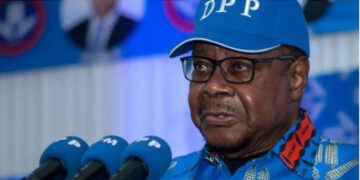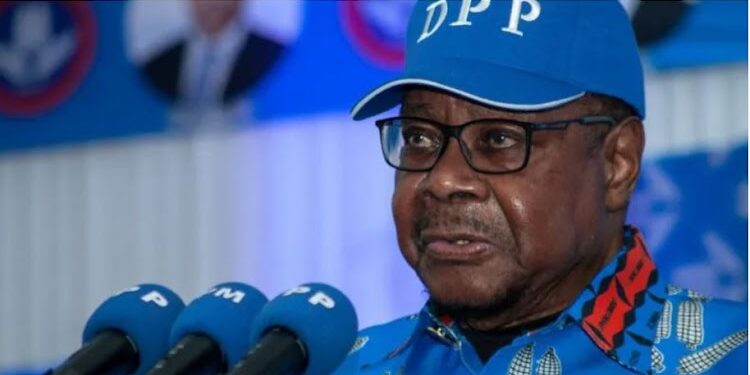By John Ikani
Peter Mutharika, the former resident of Malawi, has been named the flagbearer for the opposition Democratic Progressive Party (DPP) in next year’s presidential election.
The decision signals a significant return for the 84-year-old, who once led the nation for six years before suggesting he might retire from politics.
In a surprising reversal, Mutharika recently declared that his supporters had urged him to return, arguing that he is needed to steer the country away from what he describes as the mismanagement under President Lazarus Chakwera.
Mutharika lost to Chakwera in the 2020 presidential race, a rerun that was ordered by Malawi’s Constitutional Court after the previous year’s election results were annulled.
The court’s decision came after it uncovered widespread electoral irregularities in the 2019 vote, including the use of Tipp-Ex to alter ballot papers, which led to the invalidation of Mutharika’s victory.
The judiciary’s bold move was widely praised for upholding electoral integrity, though it plunged Mutharika’s party into a period of turmoil.
Following internal disputes, the DPP expelled several members who attempted to challenge Mutharika’s leadership, effectively clearing the path for his unchallenged re-election as the party’s leader.
The official endorsement of Mutharika as the DPP’s candidate, announced on Monday, was largely seen as a formality.
This sets the stage for a third contest between Mutharika and Chakwera, with each having won one of their previous electoral battles.
Addressing his supporters, Mutharika expressed his readiness to reclaim power, pledging “to remove an incompetent government which sees nothing, hears nothing, and does nothing.”
While Mutharika enjoys considerable backing within his party, some critics argue that the DPP missed an opportunity to present a younger, more dynamic candidate.
In contrast, his opponent, President Chakwera, is 15 years younger.
Chakwera came into office with bold promises “to clear the rubble of corruption,” create a million jobs for the youth, and ensure that every Malawian has access to three meals a day.
The administration acknowledges the challenges in meeting these goals, blaming the setbacks on the early impact of COVID-19, natural disasters like cyclones, and the global economic ripple effects of the war in Ukraine.
Government officials, including Information Minister Moses Kunkuyu, have argued that despite these hurdles, the current administration has outperformed previous governments by implementing systems designed to curb corruption.
Among the government’s achievements is the revival of train services after more than 30 years, which has helped to reduce transportation costs. There is also ongoing road construction, especially in the capital city, Lilongwe.
As the Malawi Congress Party (MCP) prepares for the election, it may highlight Mutharika’s age, questioning whether he has the physical and mental capacity to lead the country effectively in the years ahead.




































